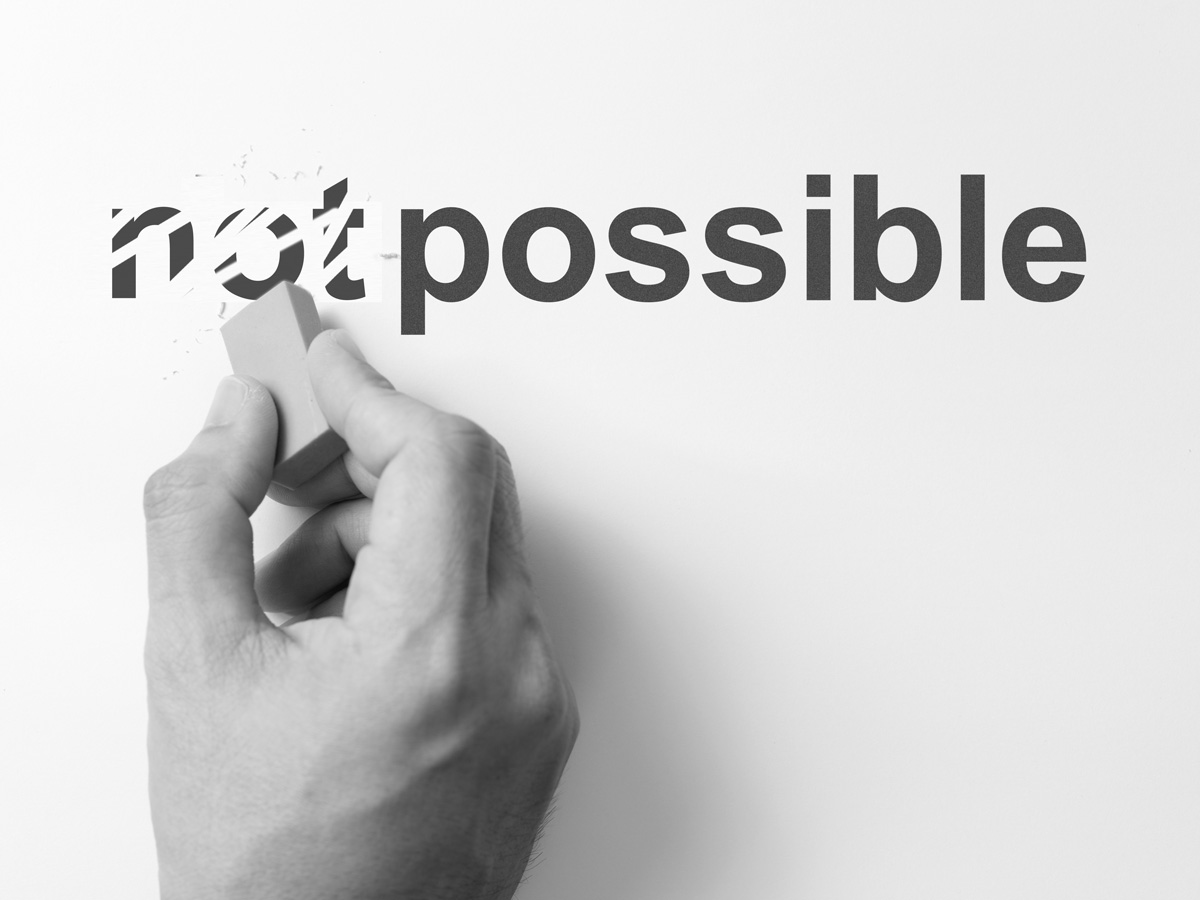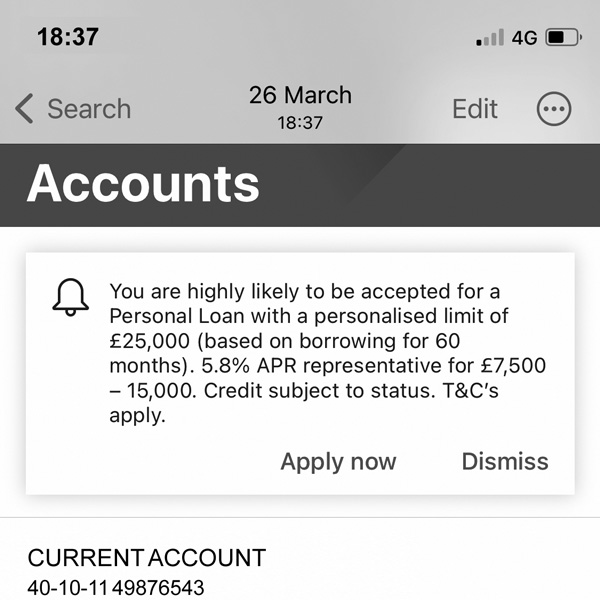Posted on 27 March 2023 by Jeff Fuge | Reading time 2–3 mins
At first glance, ‘not possible’ can feel like it means exactly the same thing as ‘impossible’. However, there’s often a big difference. And I’ve recently encountered businesses using ‘not possible’ to suggest ‘impossible’ and avoid the truth, which is simply ‘We don’t want to’.

It’s impossible to touch the moon by standing on a chair.
It’s not possible to touch the moon by standing on a chair.
Both are a valid form of words – and both are true in this instance. So, what’s the difference?
Something that is impossible absolutely cannot be done now or essentially ever. Time travel, teleportation, that kind of thing.
Meanwhile, something that’s not possible is often so out of someone’s choice. It’s not possible for me to make you a cup of tea ’cus I’m watching the telly.
A basket case
An old bugbear of mine is online grocery shopping – and specifically overcharging for substitutions made in your delivery. I previously wrote about Tesco overcharging in this way, but this week caught Waitrose doing the same thing.
My issue is not that they swapped an unavailable product for something similar, but their promise that when this happens you’ll pay the same or less.
So product A costing £2.10 got swapped for product B costing £1.20. All looks good till you see that product A was twice the weight of product B. Waitrose were therefore charging me £1.20 for £1.05-worth of the thing I wanted.
I emailed their customer service department to flag the issue, and remind them of their promise to only charge the same or less… not 15p more.
They said they were very sorry the substitution had caused me confusion.
I said I wasn’t confused, I was very clear: they were breaking their promise.
I suggested their system just needed to do some basic maths to compare the two products in question and figure a parable price given the differing weights.
My comments got passed on and someone higher up the food chain came back to me.
Thanks for my suggestion they said, but it is not possible for our system to do this.
I said, come on, it must be a few lines of code… it’s simple stuff… I could do it myself in Excel (and I’m crap at Excel).
They said here’s a £5 voucher, please leave us alone. (OK, they didn’t say please leave us alone, but they didn’t respond to my comment, so that was the gist.)
Here, ‘not possible’ does not mean impossible.
Tweaking some code (or turning on a function that may already present in their e-commerce system) is not challenging the immutable laws of quantum physics or breaking the boundaries of thermodynamics.
Here, ‘not possible’ is simply a mask for ‘we don’t want’.
And if they don’t want to, what really is impossible is for them to keep their promise that you’ll never pay more.
Banking on our apathy
A few days later I encountered another example of ‘not possible’ weaselry.
Earlier this year I noticed that when I logged into my HSBC banking app, a new box had appeared above my account details.
This typically contained ads for the bank’s products such as credit cards and loans. Other times it had tips for what you could do in the app such as paying in cheques.
Each message ended with a call to action, often an option such as ‘Tell me more’ / ‘No thanks’, or a simple ‘Got it’ in response to a tip.
After several weeks of hitting ‘Got it’ on the same old tips, and ‘No thanks’ oh so many, many times in response to offers of credit and loans, I was getting pissed off.
I navigated to my marketing preferences.
As I thought, I had not opted in to marketing by phone, email, post and SMS.
You’d think this would be a sufficient clue as to my openness to the bank’s marketing, and that I would be unlikely to welcome anything popping up in-app.
However, not only had the penny failed to drop, there wasn’t an option to opt-in or out of this new way of bothering me.
I jumped onto a chat with one of their customer service team and explained my frustration.
I don’t want or need these messages.
They are repetitive, irrelevant and patronising. (Hey, your system should know I’ve paid in numerous cheques using the app, so I really, really do not need a message once a week asking me if I know that I can do this.)
So, please, please switch the bloody things off.
They went off to check.
“Sorry!” they said.
“It’s not possible.”
But ‘not possible’ is not ‘impossible’, so I think we all know what they really meant.

